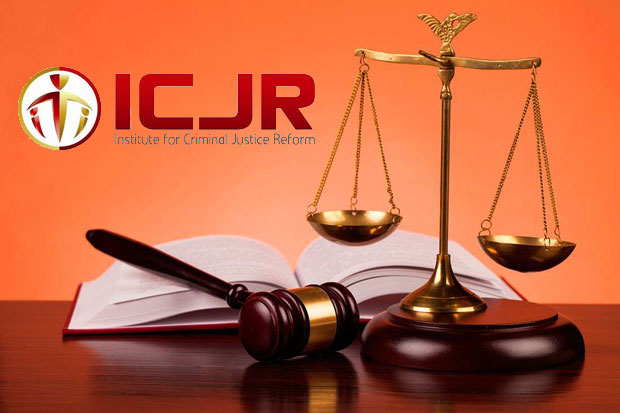Institute for Criminal Justice Reform (“ICJR”) has officially read its petition as an indirect related party applicant before a trial which held in the Constitutional Court (Mahkamah Konstitusi – “MK”) on 30 August 2016. In the petition, ICJR requested that the application regarding the revision of crime relating to decency to be not granted by the MK.
The MK is currently examining Case No: 46/PUU-XIV/2016 related to the review to Article 284, Article 285 and Article 292 of the Indonesian Criminal Code (“KUHP”) against the 1945 Constitution, which proposed by Prof. Dr. Euis Sunarti, et al, acting as a Professor from Bogor Agricultural University (IPB). In their petition, specifically Article 284 (relating to adultery) and Article 292 (on prohibition of to conduct homosexual act with children), the applicant requested the MK to decide those articles to be inapplicable, as long as it is not considered as the expansion of an adultery act under Article 284, which stated that the two elements of adultery (one of the perpetrators of the adultery is married and there should be no complaint) are not necessary. Moreover, relating to Article 292, the applicant requested the removal of the phrase “children”, so that all kinds of homosexual act can be punished.
In such trial, ICJR assesses that if the above-mentioned petition is granted by the MK, specifically related to Article 284 and Article 292, Indonesia will potentially face the so-called crisis of over-criminalization, which is the abundance of acts that can be punished. ICJR also deliver a number of legal arguments, including:
First, the applicant fails to understand basic principle of Article 284 of the KUHP. Article 284 of the KUHP has a clause “marriage bond” and is a crime based on complaint (delik aduan) in accordance with two main things, first, this article is used to protect marriage, so as to respect the institution, and State may penalize those who have broken the bond of marriage. Second, in the minutes of the discussion regarding the KUHP, crime on complaint can only be filed by people who feel the direct effects from the adultery act, which is his/her partner, this is because it is illogical if a State interferes in family affairs of its citizens. It is feared that the interference from states will adverse impacts of victims who suffer from the adultery acts.
Second, the applicant fails to understand basic principle of Article 292 of the KUHP. Article 292 was drafted specifically to protect children from homosexual acts. The highlight is on “lewd act to child” in the context of homosexual; child is considered to be unable to give “consent”. Applicant seems to be not conscientious when the underlying the petition on the ground that adults should also be protected from homosexual lewd acts. Therefore, the existing Article 289 of the KUHP Penal Code, which stipulates:
“Whoever force someone with violence or violence threats to do or let any lewd acts to be done, are threatened for doing things that attack the honor of decency, with a maximum 9 years’ imprisonment.”
Article 289 of the KUHP has protected lewd acts which conducted to adults either in same-sex or opposite sex. The existence of a clause “child” in Article 292, because child must be protected under all circumstances, so it does not require the element of violence or threats of violence as stipulated under Article 289 of the KUHP.
Third, that criminalization of an act into a crime should also be made in a law because it will contain sanction that clearly restricts human rights. Such restrictions, especially in the form of a criminal offense, should be discussed further and involving the government and the society (in this case represented by the House of Representatives); Currently, the legislation process on the revision of the KUHP have also been discussing the a quo norm (parliamentary and executive review), and therefore, assessing the substance of these norms is not appropriate at this time. Hence, it is appropriate if the House is the one which formulate the offense as desired by the applicants
Fourth, the petition from the applicants will result in high rates of penalization and enlarge the number of criminal act perpetrator. This will have a direct impact to the obligations of the State relating to penal policy, expanding facilities in trial process, law enforcement, and prisons. This condition will also result in changes in criminal policy priorities in Indonesia. The government’s priority will be divided in combating priority crime, such as corruption, drugs, terrorism and other organized crime. Currently, Indonesia is still facing a difficulty in facing these kinds of crimes. Focus of the government will be divided with the additional work to deal with articles relating to decency, which is not a priority for Indonesia at this moment.
Fifth, criminal policy that wants to expand the crime relating to decency will make a State to go way further in controlling the very privacy rights of its citizens. A State would be very easy to mix private and personal issues with public affairs. This will disavow criminal law as a last effort to resolve legal issues (ultimum remedium). In other words, there will be no respect on privacy rights of the citizens, because in the name of criminal law, State would be free to meddle in the private affairs of its citizens. So it can be imagined, police will be more repressive and has bigger authority to meddle into the private area of its citizens.
Sixth, the assumption that a State has the capacity to ensure security, maintain the level of legal compliance, and be able to control the crime rate will collide with the limited capabilities of that state in question. Consequently, public will assess that a State is unable to perform its functions and duties. The worst thing, there will be a “vigilante” as a result from the high rate of public distrust due to the limited capability of a State in handling numerous criminal cases.




